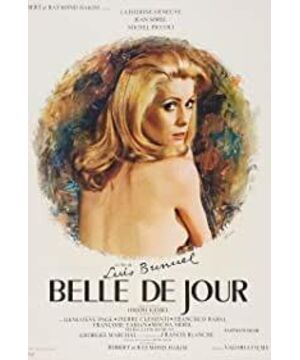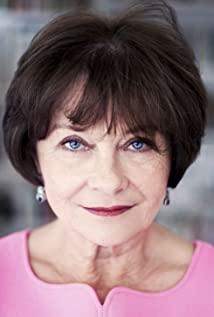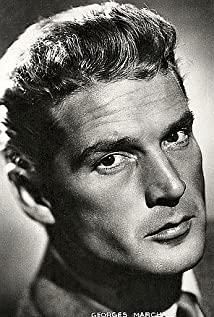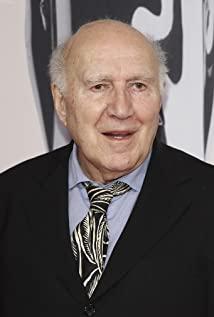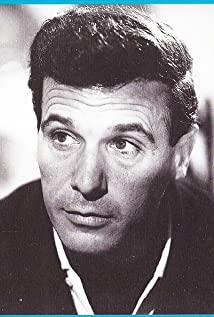review written when the film was re -screened in theaters in 1996) Luis Bunuel's "Belle de Jour" (Belle de Jour) is a 1967 film, but it can teach us how to be in the film What is erotic. Let’s start with Catherine Deneuve’s face. She is listening to a taxi driver describing a famous Parisian brothel where boring women might work for one or two afternoons a week to earn some pocket money. money. There was no expression on her face. The camera stopped there. The driver continued. We understand that Deneuve's role has been completely immersed in everything she heard, and sooner or later she will involuntarily go to that brothel to experience what a "day beauty" is.
Regarding this character, we already have some understanding at this time. Her name is Severina, and her husband is a wealthy and boring young businessman (Jean Sorel). The married life of the two is comfortable but lacks passion. An old friend (the gloomy Michel Piccoli) tried to seduce her, but did not get her response. He said, "It is your virtue that interests me." Perhaps this is why she is not interested in it: What she wants is not a man who thinks she has virtue, but a man who thinks she doesn't. Virtuous people.
She walked down the street and slowly approached a luxurious apartment building, where Mrs. Anais ran the famous brothel. The camera focused on her feet (Bunuel is famous for his fascination with feet). She stopped, turned and walked away. In the end, she rang the doorbell and walked in. Mrs. Anais (the elegant, lifelike Genevieve Page) greeted her and asked her to wait a while in the office. Here, Deneuve's face still doesn't show any emotion. Absolutely not. After that, she learned about the rules of this brothel, thought for a while, and finally accepted them one by one. She became a "day beauty".
There are no sweaty athlete-style sex scenes in this movie. There are hardly any nude scenes, it is just so cautious. All the really sexy things in this movie happened in Sevrina's mind. We have to guess how she feels. The only clear and unmistakable sentence she said was, "I can't control myself." A lot of things are done outside the painting. The most famous scene in the film—in fact, one of the most memorable scenes in film history—is that a customer showed her a beautiful little box. He showed her what was inside, hoping to use it with her in the next hour. She shook her head and refused. What is in the box? We never knew.
Imagine this scene. So many years have passed since I watched "Beauty in the Day" for the first time. I have been wondering what is in the box. If we change the current Hollywood stupid filming method, we will definitely see the contents of the box, and then Sevrina shook her head like that, and after another ten minutes, we will forget the scene.
In "Beauty in the Day", all the erotic things are only implied and alluded to. The missing chain in the middle needs to be completed by our own imagination. Watch the bathing scene of Sharon Stone and Sylvester Stallone in "The Specialist" or the "harassment" scene of Demi Moore and Mike Douglas in "Disclosure" , There is no room for imagination at all. Every drop of sweat, every inch of skin, hungry lips, fighting body, we can all see clearly; but we are still outsiders. We are just peepers, watching them busy on the screen, doing things that we can't participate in. This is just a technical presentation.
But in "Day Beauty", we are also involved in the secret world of Severina. We have to fill up her thoughts by ourselves, and in the process, these have also become our thoughts. Bunuel knows how invested and fascinated people are in their fantasies. The guests waited in the room, and Sevrina came in, she had no curiosity, no fear or expectation on her face-let alone desire-because what she saw in her eyes was not this room, but herself . What excites her is not what she can find in this room, but the fact that she walks into the room itself.
Luis Bunuel belongs to the few real film masters. He looks at human nature with a cynic and detached look; he looks at the characters in his works with a kind of confusion, watching them gradually become victims of desire and greed . But he also had some sympathy for them, but to a limited extent. He understands why Severina is attracted to the brothel, but he doesn't stop there, and doesn't let the story just stay in her afternoon adventure. He continued to push until the extraordinary end, and she finally got what she really wanted.
I don't want to reveal the ending of the story. But watch out for a street shootout near the end of the film. Bunuel didn't stay here any longer; in fact, he finished the scene in a perfunctory way, as if he was anxious to get it done. In order to explain the next development of the plot, there must be this gunfight; but its role is nothing more. Directors nowadays are more obsessed with style than story. If they are allowed to shoot, they will definitely stay in this gunfight scene for a long time---arrange it into a big scene and bring an action scene climax to the film. But that would be all wrong, and Bunuel would not do it.
(It's really great. From the first sentence, it is destined to be a commentary.)
View more about Belle de Jour reviews


